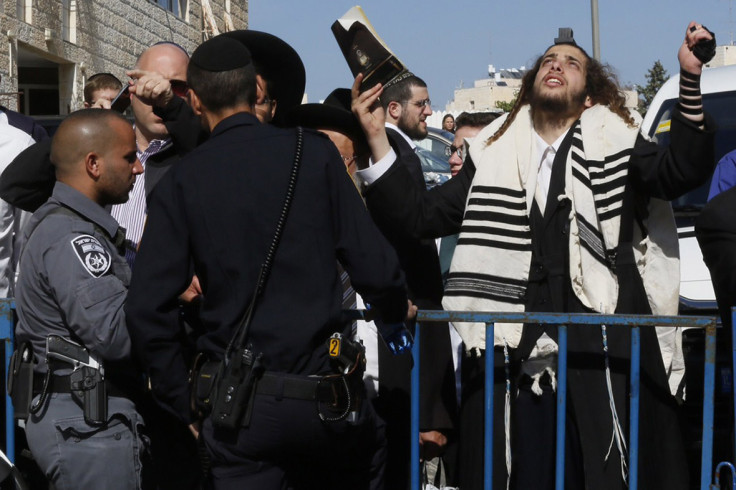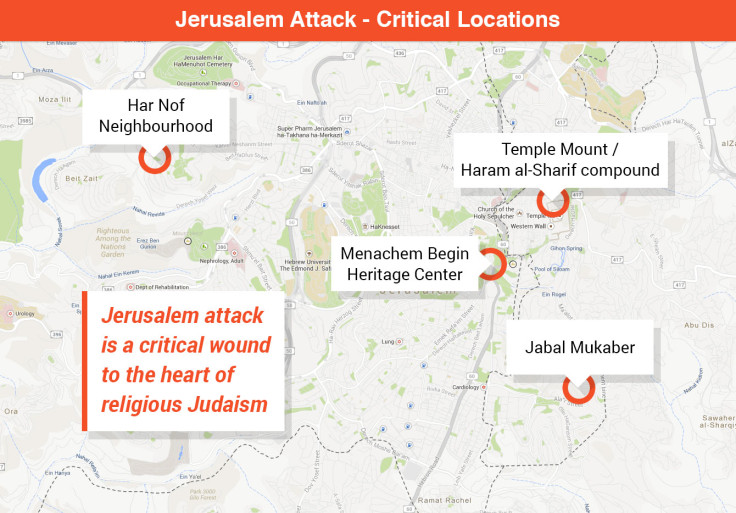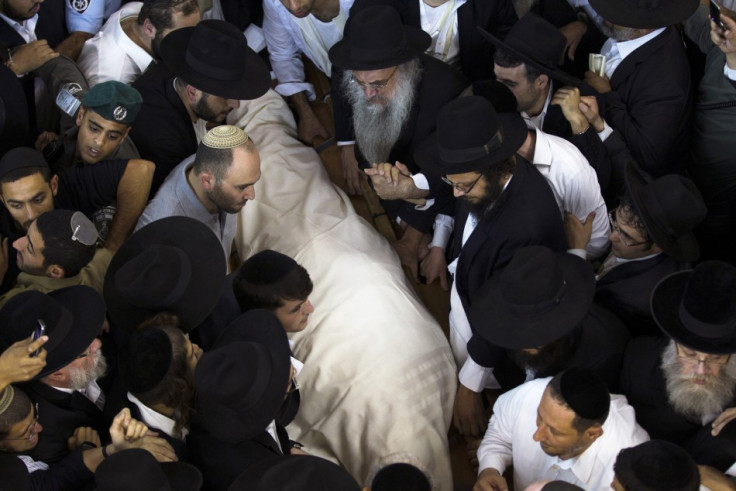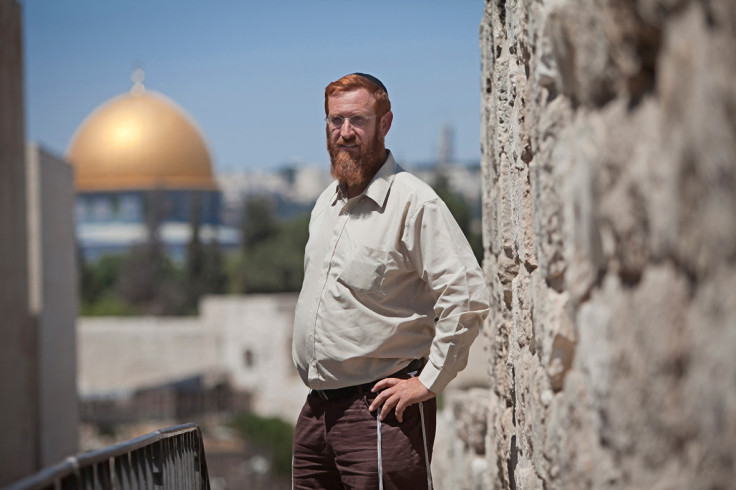Jerusalem Synagogue Attack: Lone Wolves Hunting in the Heartland of Religious Judaism

In one of the worst terrorist attacks that Jerusalem in recent years, two Palestinian cousins stormed a synagogue in the ultra-Orthodox Har Nof neighbourhood slaughtering worshippers with a gun and an axe. Four Israelis were killed, six wounded. Among those killed was Rabbi Moshe Twersky, 60, head of the Harav Shimon Agassi Street seminary.
While Islamist militant group and Gaza ruler Hamas praised the bloodbath calling it a "response to continued Israeli crimes, the killing, desecrating al-Aqsa [mosque]", another Palestinian armed group, the far-left Popular Front for the Liberation of Palestine (PFLP), said the two assailants were part of its armed wing, the Abu Ali Mustafa Brigades.
It stopped short though of claiming direct responsibility for the attack, failing to say whether they had been instructed to launch the raid or acted of their own initiative. Israel's police chief, Yohanan Danino, had suggested the attack was likely not planned in advance by the group. "These are individuals who decide to do horrible acts. It's very hard to know ahead of time about every such incident," he said.
Raba Mhanna, senior PFLP official says it's "not definite" his group behind synagogue attack but commends the "heroic operation by comrades"
— Sherine Tadros (@SherineT) November 18, 2014The "grassroots terrorism" nature of the synagogue assault hints at a fresh, worrying development in Palestinian armed resistance against Israel's occupation. It comes at the apex of violence that has escalated in the holy city in the past months, and which culminated in the attempted killing of a hardline Jewish activist, Yehuda Glick.

Jerusalem Intifada?
Rioting became a daily occurrence in Jerusalem since the brutal killing of a Palestinian teen in July. The burnt body of Mohammed Abu Khdeir, 16, was found in a Jerusalem wood, allegedly in retaliation against the kidnapping and killing of three Israeli teenagers on the West Bank.
The slaughter of Khdeir had an appalling effect on the already traumatised Arab population in occupied East Jerusalem, triggering nightly riots with Palestinians hurling rocks and petrol bombs at police, who responded to violence with teargas and water cannons.
Unlike the first and second Intifada - the Palestinian uprisings that started in 1987 and 2000 - the current unrest and rioting lacks the official support of the actors involved. As brilliantly exposed by Anshel Pfeffer on Haaretz newspaper: "the monopolies dominating the West Bank and Gaza, Israel, the Palestinian Authority, Egypt and yes, even Hamas, still have too much of a vested interest in the current distribution of power."
In 2nd Intifada the suicide-bombers were sent from Palestinian-controlled cities. Attackers now coming from #Israel-ruled East Jerusalem
— Anshel Pfeffer (@AnshelPfeffer) November 18, 2014
What is the common denominator of these "lone wolves" attack, then? It is clear that the two Palestinian attackers had in mind to target the heart of religious political Sephardim, inflicting a critical wound to ultra-Orthodox Judaism.
The heartland of Shas

Har Nof is the neighbourhood where the late Rabbi Ovadia Yosef used to live and from where he headed the initiative in 1984 to establish a political movement of religious Sephardim called Shas party. Other party leaders such as Eli Yishai, former minister of internal affairs, lived in the neighbourhood, which is considered the heartland of Shas country.
Yosef was a controversial public figure, who once said that the six million Jews who died in the Holocaust were the reincarnation of sinful souls and called the Arabs "venomous snakes". His most controversial statement, however, came in 2010 when he said that Goyim (non-Jews) were "born only to serve us [Jews]".
Loved and loathed in equal measure, Yosef was nonetheless an important spiritual figure for all Jews. Targeting Jewish worshippers praying inside a synagogue at the earliest hours of the day is a clear stab in the heart of religious Judaism.
Religious tensions in Jerusalem have been reignited over a row over its holiest site, the Haram al-Sharif (The Noble Sanctuary) compound, known to Jews as Temple Mount.
Temple Mount clashes
A convicted members of the Islamic Jihad shot and wounded Yehuda Glick, a far-right settler rabbi who lobbied for greater Jewish access to Temple Mount. Glick was shot as he was leaving a conference at the Menachem Begin Heritage Center on lifting the ban on Jewish prayer at the hilltop compound.
Palestinians complain that Israeli right-wingers continue to storm the site, which includes the al-Aqsa mosque, attempting to overturn the status quo imposed after Israel's occupied Jerusalem's Old City in 1967, which forbids Jewish prayers in the compound.
The Second Intifada in 2000 began after a visit by the late ex-PM Ariel Sharon to the site, which has been administered by an Islamic Waqf (trust), under the authority of Jordan, since the crusades.
After the attempted Glick assassination, Israel sealed off the Al-Aqsa site enraging Palestinians and causing their president Mahmoud Abbas to say that the closure of Islam's third holiest site was "almost a declaration of war".
The situation cooled down after US secretary of state John Kerry, Israeli PM Benjamin Netanyahu and King Abdullah of Jordan agreed to take steps to quell violence in the holy city. Abbas pledged to nonviolence and immediately condemned the synagogue attack.
But that was not be enough to thwart radicalised rogue attackers and frustrate the tit-for-tat tactics in the holy city now boiling with religious rage and set to explode.

© Copyright IBTimes 2025. All rights reserved.





















